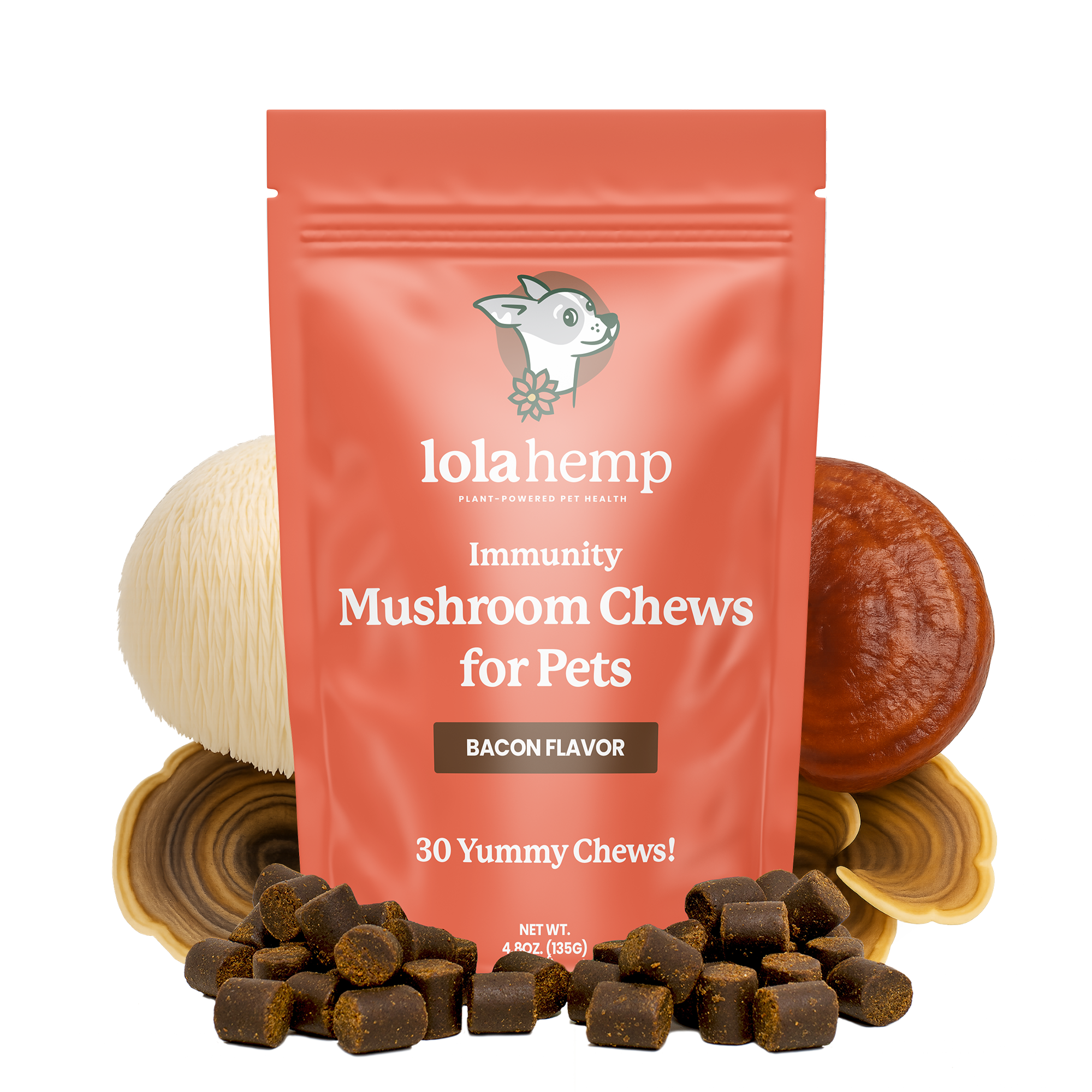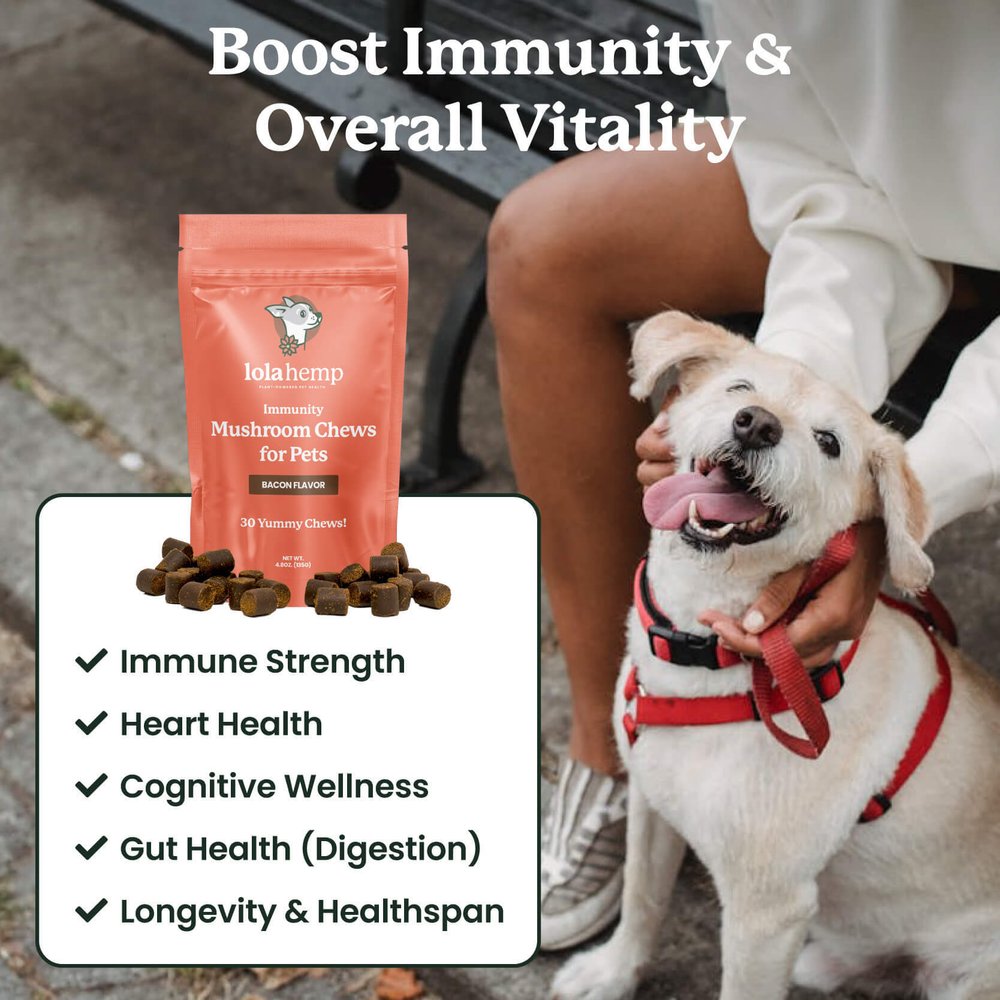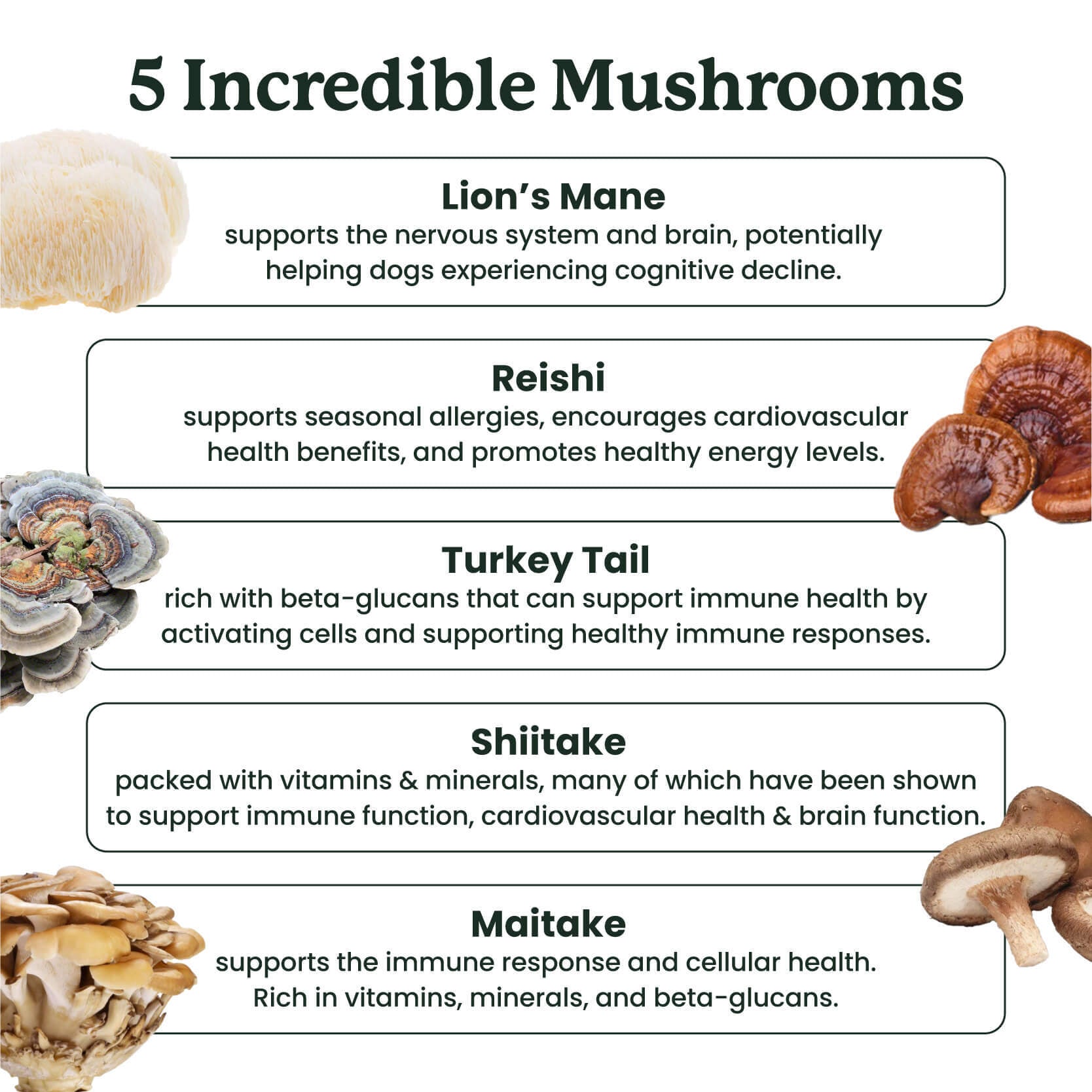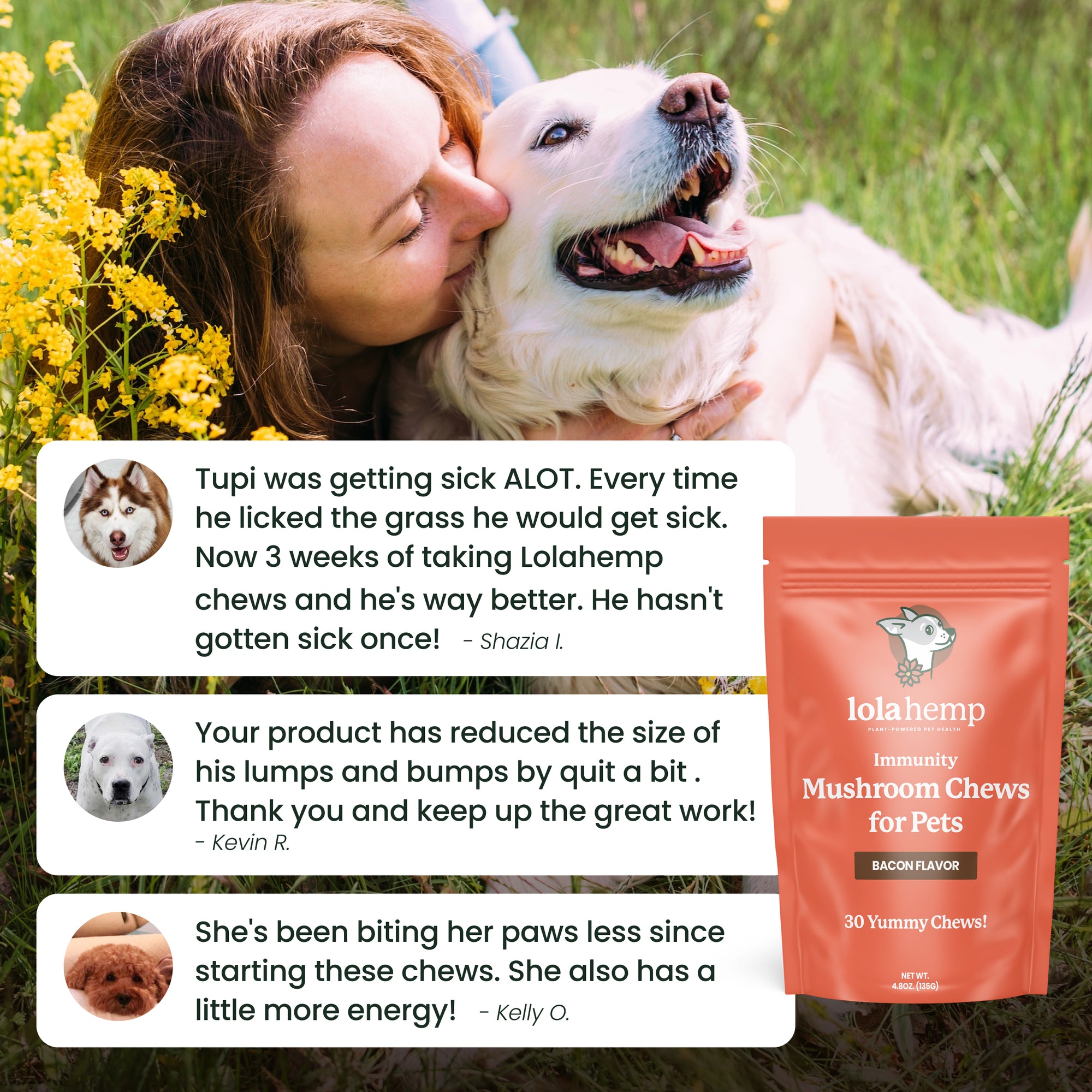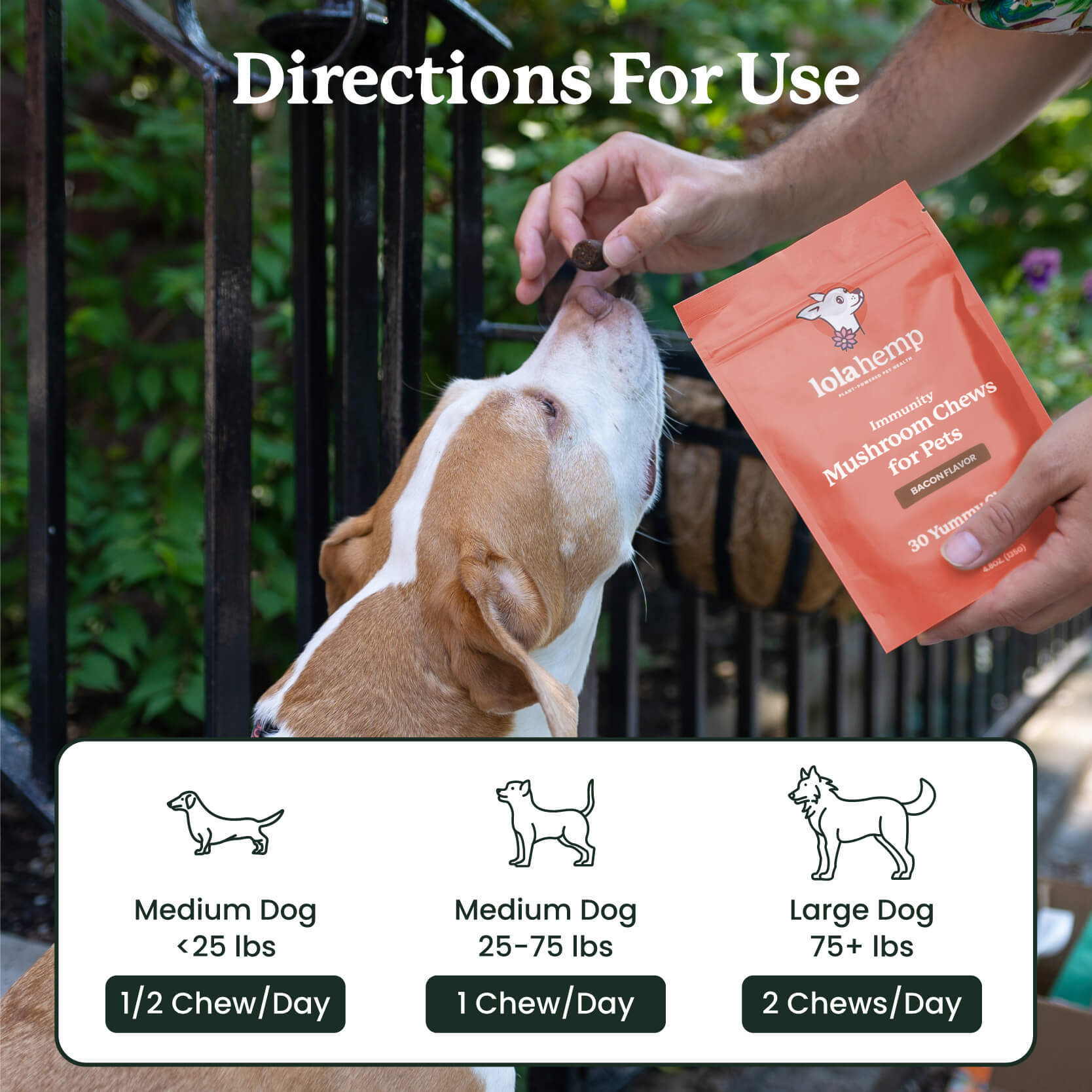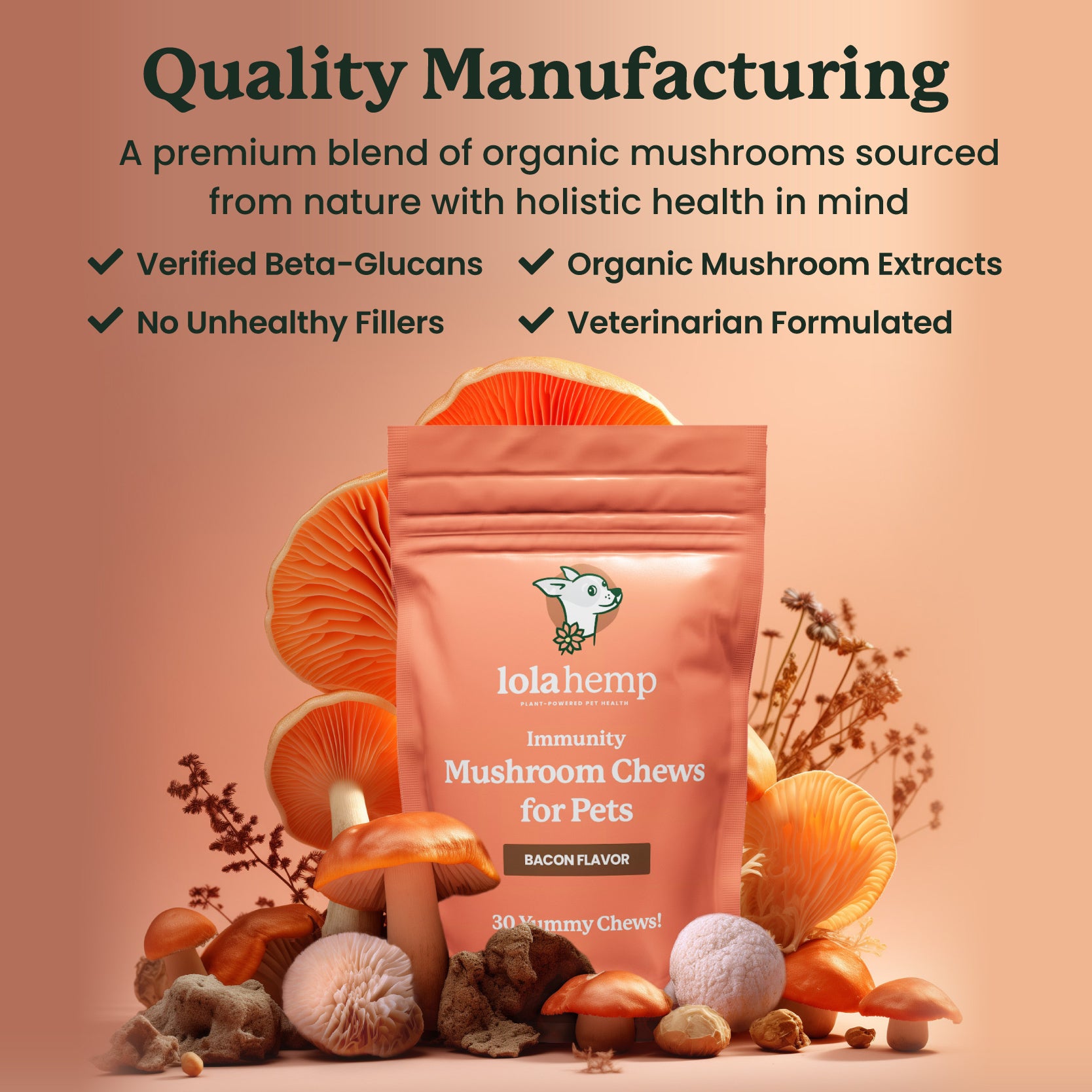Free radicals can cause oxidative stress, which affects your dog’s cells and can lead to various health problems. These unstable molecules are naturally produced during normal bodily functions, but when their levels are too high, they may contribute to aging, inflammation, and even certain chronic diseases.
But what if mushrooms could help? Some mushrooms have antioxidant properties that might assist in neutralizing these free radicals. Let’s dive into how mushrooms can support your dog’s health by fighting free radicals and promoting overall well-being.
- Understanding Free Radicals and Oxidative Stress in Dogs
- The Antioxidant Properties of Mushrooms
- How Mushrooms Might Help Your Dog's Fight Against Free Radicals
- How to Safely Incorporate Mushrooms into Your Dog’s Diet
- Can Mushrooms Help with Aging and Longevity?
- Conclusion
- Frequently Asked Questions About Mushrooms for Dogs and Free Radicals
Understanding Free Radicals and Oxidative Stress in Dogs
Free radicals are highly reactive molecules that can damage cells by stealing electrons from other molecules, leading to a chain reaction of cellular damage. This process, called oxidative stress, is linked to the aging process and can contribute to conditions such as joint pain, cognitive decline, and weakened immune function.
While the body has natural defenses, including antioxidants, to fight free radicals, external sources like pollution, poor diet, and stress can overwhelm these systems, leading to damage. This is where antioxidants from natural sources like mushrooms may play a role in helping to protect your dog’s health.
The Antioxidant Properties of Mushrooms
Several mushrooms are known for their high antioxidant content, which may help combat oxidative stress and protect your dog’s cells. Let’s explore a few that may be beneficial:
- Lion's Mane Mushrooms: Lion's Mane is known for its potential to support brain function, but it also contains compounds that could help protect against oxidative stress by scavenging free radicals.
- Shiitake Mushrooms: Shiitake mushrooms are rich in antioxidants like ergothioneine, which may help prevent cellular damage and reduce inflammation caused by free radicals.
- Maitake Mushrooms: Maitake is another antioxidant-rich mushroom that can help regulate immune function and fight oxidative stress. It contains compounds like beta-glucans that may provide cellular protection and overall health support.
- Reishi Mushrooms: Known for their immune-supporting and anti-inflammatory properties, Reishi mushrooms also possess antioxidant qualities that can help protect your dog’s cells from free radical damage.
How Mushrooms Might Help Your Dog's Fight Against Free Radicals
By incorporating antioxidant-rich mushrooms into your dog’s diet, you may be able to support their body in combating free radicals and reducing the effects of oxidative stress. Here are a few potential benefits:
- Inflammation: Chronic inflammation, often caused by oxidative stress, can contribute to conditions like arthritis and other degenerative diseases. Mushrooms like Reishi and Shiitake may help reduce this inflammation by neutralizing free radicals.
- Supporting Cognitive Health: Cognitive decline in aging dogs may be linked to oxidative stress. Mushrooms like Lion's Mane may offer support by providing antioxidants that help protect brain cells from free radical damage.
- Promoting Overall Well-being: Mushrooms rich in antioxidants may help support your dog’s immune system and promote healthy aging by minimizing the damage caused by oxidative stress.
How to Safely Incorporate Mushrooms into Your Dog’s Diet
If you’re considering adding mushrooms to your dog’s diet for their potential antioxidant benefits, follow these guidelines:
- Choose Safe and High-Quality Products: Only opt for mushrooms that are safe for dogs, like Reishi, Shiitake, Lion's Mane, and Maitake. Be sure to select products that are free of additives, fillers, and artificial ingredients.
- Introduce Gradually: Start by adding small amounts to your dog’s diet, monitoring their reaction to ensure they tolerate the new addition well.
- Consult Your Veterinarian: Always check with your vet before introducing new supplements, especially if your dog has any preexisting conditions or is on medication.
Can Mushrooms Help with Aging and Longevity?
While more research is needed to fully understand the long-term benefits of mushrooms for dogs, their antioxidant and anti-inflammatory properties suggest they may play a role in supporting healthy aging and longevity. As your dog ages, mushrooms like Reishi and Maitake could help keep them feeling their best by minimizing oxidative damage and supporting their immune system.
Conclusion
Mushrooms can provide natural antioxidant support that may help your dog fight free radicals, reduce inflammation, and support overall health. By choosing high-quality mushroom supplements, you can help protect your dog’s cells and promote their well-being.
To get started, be sure to choose a safe, high-quality mushroom supplement and consult with your vet to determine the best approach for your dog’s health needs.
Frequently Asked Questions About Mushrooms for Dogs and Free Radicals
Can mushrooms really help fight free radicals in dogs?
Yes, certain mushrooms contain antioxidants that can help neutralize free radicals and reduce oxidative stress, supporting cellular health in dogs.
Which mushrooms are best for antioxidant support?
Reishi, Shiitake, Lion’s Mane, and Maitake mushrooms are among the best choices for antioxidant and immune-boosting benefits in dogs.
Can mushrooms help with aging in dogs?
Yes, antioxidant-rich mushrooms may help slow the effects of aging by minimizing oxidative damage and supporting immune and brain health.
Are all mushrooms safe for dogs?
No, not all mushrooms are safe. Only use mushrooms specifically formulated for pets or approved by a veterinarian—wild mushrooms can be toxic.
How should I add mushrooms to my dog’s diet?
Use a trusted dog-safe mushroom supplement, starting with small amounts and monitoring your dog’s response. Always consult your vet before starting.

